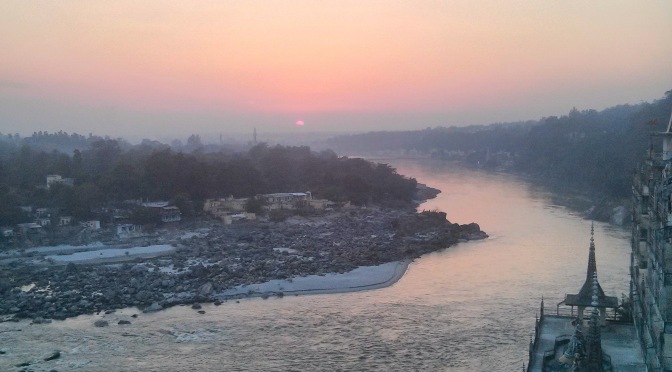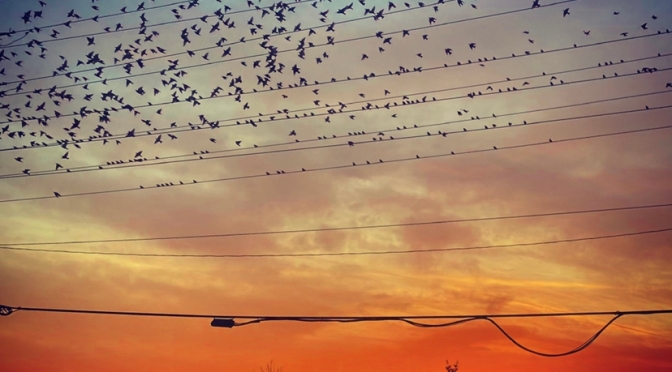Tomorrow Is Wednesday
by
David Halliday
Tomorrow is Wednesday. That’s a certainty. I stared at my alarm clock. The alarm clock stared back. I put it to my ear. It wasn’t running. I shook it. No success. Perhaps the battery had run out, I thought to myself. All this time the cat was looking at me with a strange sense of wonder. Or disdain. I threw my shoe at him. He didn’t move. I missed. I got up and retreated into the kitchen to check my calendar. I had an itch. And there it was written on July 2, Tuesday. Dentist. I had to get my false teeth tightened. They kept falling into my soup.
As you get older you no longer appreciate people who are peppy. They are exhausting to be around. And that was Amy, the receptionist in Dr. Quinn’s office. Bouncing around like a French Bulldog trying to lick your nose. Someone shook me. I’d fallen asleep. I opened my eyes and there was the cheerful face of Amy.
“Mr. Martin, The doctor will see you now.”
“Something is wrong with your clock,” I said.
Dr. Quinn
Dr. Quinn was an odd sort of bloke. He had bangs and coke bottle glasses. And he spoke with a broken German accent.
“Now, lets see those choppers,” he said.
I took my teeth out and placed them in his hand. He was wearing plastic gloves.
“These are antiques,” he said. “Have you ever considered dental implants, Mr. Martin? We’re having a sale on them this month so your timing couldn’t be better.”
“I’ll stick with the antiques.”
The doctor took a set of small tools out and began working on the teeth.
“I never asked you how you lost all your teeth.”
“That’s correct.”
“Its very unusual for your generation to have lost all their teeth. The war generation on the other hand was another story.”
I nodded. He put my teeth back in my hand. I put them back in my mouth. They fit beautifully. I thanked him and was on my way.
Brewer’s Cafe
I sat outside at Brewer’s Cafe enjoying a coffee. Across the street a city crew was working on the clock in the Peace Tower. The Peace Tower celebrated all those who had lost their lives in war. Those in our town. I did serve in Korea, a wretched excuse for a war. One of the workers came over to the cafe to pick up coffee for his mates. I asked him what the problem with the Peace Tower might be.
“I don’t want to get too technical,” he said. “But it appears to be broken.”
I looked at my pocket watch and it was working perfectly. And then I wound it.
A handsome woman sat down at the table next to me. She must have been in her forties or fifties. Her hair was bundled on top of her head. The waiter arrived and placed a cup, a pot of tea, and a biscuit in front of her. There was sugar and cream on the table but apparently she took her tea black.
“You’re very nosy, aren’t you,” she said without looking at me.
“I’m interested in how the world works.” I responded.
“I don’t work well when I’m being watched,” she replied.
I turned away.
“Don’t pout,” she said. “My name is Gabriella Artibello and I am the local spinster slash librarian.”
And so we talked for some time. And then a younger man showed up and sat down at the table with her. They pecked at each others cheeks. I was introduced.
The young man apologized for being late. His alarm clock didn’t go off.
“Perhaps you need new batteries,” Ms. Artibello said. “I have that problem occasionally.” We all laughed though I admit not knowing the source of our amusement.
I parted company with my new companions and made my way down the street to Genova’s Fruit Market. Mr. Genova was the lead singer of the church choir. The store was closed for renovations. I could hear yelling and screaming inside. I moved on. I had a meeting with Dominic Guzman. When I first met Dominic he looked a decade older than me. He now looked decades younger. He told me he was preserved in alcohol. We were going to an AA meeting. When I saw him he was leaning on the wall of the LCBO, the liquor store.
“I thought we were going to a meeting,” I said.
“What’s the point?” Dominic responded.
“I thought you wanted to reform.”
“No time.”
“You got some kind of terminal illness?”
Dominic grinned.
“You don’t know?”
“No.”
Dominic continued to grin, like he was waiting for some great truth to seep into my concrete brain.
“I’ll know, Dominic, when you tell me.”
“A lot of clocks have been stopping. The one at the bank ceased moving at 3 a.m. My stove at 4.30 a.m. My wrist watch is running slow. I went by Wendel’s Appliance store and the picture on all the televisions are frozen. We’re running out of time.”
I stared at Dominic. “What does that mean.”
“Existence only has so much time and we\re running out of it. The gas tank is empty. I figure we’re operating mostly on fumes. It’s over buddy.”
I walked away from Dominic, turned, and walked back at him, waving my finger at him.
“This is crazy. Where did you come up with this inspirational insight?”
“At the pool hall”
I nodded.
“Crazy Eddie told me everything. In great detail. Its sobering isn’t it? Which is another reason I bought this bottle of gin. And you know how much I hate gin.”
“Crazy Eddie is crazy. That’s why they call him Crazy Eddie.”
Revelry Pool Hall
I made my way up the stairs to Revelry Pool Hall. A couple of times my knees gave out on me. I stopped and wrote ‘turmeric’ on my hand. Crazy Eddie and Sloppy Jo were sitting in the corner of the pool hall having a cigarette. The place was mostly empty except for some high school kids from the local collegiate. The Revelry was one of the few public spaces where you could still smoke.
“I got the cancer,” Sloppy Jo said to me when I pulled up a chair to sit with them.
“What’s the prognosis?” I asked.
“Death,” Sloppy Jo said then shrugged his shoulders. “It’s been coming on for some time.”
I turned to Crazy Eddie.
“What the hell are you thinking filling up Dominic with those crazy ideas about time running out? You know how vulnerable he is to any… idea. He started drinking again.”
Crazy Eddie laughed, shook his head, then coughed out a lung full of smoke.
“Ya, but its so much fun. The guy still believes in Santa Claus. I had him eating out of my hand.”
“That’s cruel Crazy,” I said. “That’s not how we treat our friends.”
“Ah,” Crazy said then pompously waved me off with his hand.
“I’m bringing Dominic down here tomorrow and you’re going to tell him that you were just pulling his chain.”
“And why should I do that,” Crazy Eddie said.
I looked Crazy straight in the eye.
“Do I have to remind you?”
So evening comes. There was a little rain. Not heavy. Just enough to clean the dog shit off the sidewalks. And then the soft sound of rain dripping off the trees. I looked out the window at the yellow moon squeezing its head through the pillow like clouds. The cat jumped up on the sill, curious to know what I was looking at. I turned away. I felt like going out for a pint.
The Headless Chicken
The Headless Chicken was a local pub. There was a good crowd. Taking a seat at the bar, I ordered a Martins Pale Ale. There was a fight on the television, two middle weights, and the chatter and laughter of folks having a good time. Nobody seemed interested in the fight. Sloppy Jo joined me.
“I got the cancer,” he said to me.
I nodded. “You told me that this afternoon.”
“Well I’ve still got it.” He ordered a beer then added. “You hear that Crazy Eddie is getting married again.”
“How many is that?”
“Who knows. Marrying a girl from down East. Fredericton. Don’t know why anyone would marry a Maritimer when we got plenty of hens here in good ole Ontario. Did you ever hear about the headless chicken that lived for 18 months? They named this pub after him. Think his name was Mike. I guess they should have named the pub Mike.”
Sloppy continued to tell me about Mike. I went into a kind of fog. And then I saw her. Across the room. Sitting with a couple of girlfriends, staring at me. I picked up my beer and made my way across the room and introduced myself. The girl stood up and grabbed my hand and guided me over to an empty table. We sat down.
“Tell me about yourself,” she said.
I began to tell her about the universe running out of time. And she listened.
Somehow we ended up in my apartment. I told her I was out of practice with this sort of thing.
“Don’t worry about that honey. I’ll handle everything.”
I looked at her. I wouldn’t say she was pretty but she was a woman. I won’t got into the details of our coupling but I think I did rather well. As she was getting dressed she gave me the bill. I didn’t think a thing like that would cost so much. Luckily I had cashed my Old Age Pension cheque earlier that week. And just like that she was gone. The cat had watched the whole thing from the window sill. He put his paw behind his head and started scratching. I fell asleep.
The next morning I woke up with high expectation. I hadn’t felt so great in years. I had an extra jump in my step. I remembered that I had to get some cat food. And coffee. And I could use some cream as well. The air was so fresh when I stepped out into the morning. There were kids playing with hoola hoops across the street. I thought they had gone extinct in my youth. The hoops, not the kids. I picked up a newspaper as I entered Genova’s Fruit and Vegetable. The place looked brand new. New floors, new shelves, new everything. And Mr. Genova, a younger looking Mr. Genova, he still had his hair, was behind the counter helping a lady in a poke-a-dot dress and puffy sleeves. I looked at my newspaper. It was Wednesday. But the year. The year!
“Your wife was in here earlier,” Mr. Genova said. “She says you’ve wandered off again. If you don’t show up for dinner she’s reporting you missing to the police.”
I looked up.
“Is she pretty?”
Mr. Genova winked at me.
“Prettiest girl in the choir.”
THE END




























